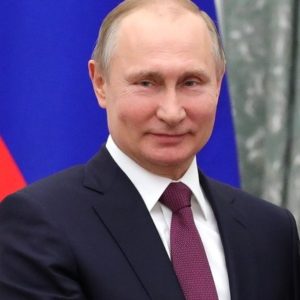The release of Special Counsel Robert Mueller’s report on alleged collusion between the Trump campaign and the Russian government, along with allegations of obstruction of justice by the president, has (seemingly) answered some questions but only generated still others.
That the president was enraged that Mueller had been appointed comes as no surprise. What he did in response evokes memories of Richard Nixon and Watergate.
According to the report (p. 77), Trump viewed Mueller’s appointment as the “end of his presidency and that Attorney General Jeff Sessions had failed to protect him and should resign.”
Sessions submitted, but Trump ultimately did not accept, his resignation. Trump then apparently borrowed from Nixon’s playbook, reportedly asking White House counsel Don McGahn to “have the Special Counsel removed because of asserted conflicts of interest.”
McGahn did not carry out the instruction for fear of being seen as triggering another Saturday Night Massacre and instead prepared to resign. McGahn ultimately did not quit and the president did not follow up with McGahn on his request to have the Special Counsel removed.” (p. 78)
What’s also clear to me from reading the report is that Mueller and his team apparently considered, but ultimately decided not, to go after Trump for obstruction of justice.
In the section dealing with the yearlong negotiations with the White House over getting the president to voluntarily provide answers to questions about his relationship with Russian entities, Mueller provided a rather remarkable account (p. 13):
“During the course of our discussions, the president did agree to answer written questions on certain Russia-related topics, and he provided us with answers. He did not similarly agree to provide written answers to questions on obstruction topics or questions on events during the transition. Ultimately, while we believed that we had the authority and legal justification to issue a grand jury subpoena to obtain the president’s testimony, we chose not to do so. We made that decision in view of the substantial delay that such an investigative step would likely produce at a late stage in our investigation.”
The job of a prosecutor is to follow the leads he and his investigators get, and to secure the necessary evidence and testimony, via subpoena if necessary. It simply strains credulity to suggest that on the key question of whether Trump had, by pattern and practice, obstructed Mueller’s own investigation that Mueller should back off because of “the substantial delay.”
Mueller’s team wasn’t facing an expiring clock on their investigation, and the Special Counsel clearly believed he had the legal authority to compel the president’s testimony. When the moment came, he balked. Look for Mueller to get grilled — probably rhetorically incinerated — by House and Senate Judiciary Committee Democrats over that decision.
What also comes through clearly in this report is that while Trump may have escaped a showdown and constitutional crisis of the magnitude of Nixon’s, he nevertheless emerges as a man unable to control his emotions and prone to giving subordinates orders that, if executed, could provoke similar major crises down the road.
The level of turnover at senior and mid-levels of this administration — not only at the White House but at multiple departments and agencies — puts the country at risk in the event of a genuine domestic or foreign crisis requiring cool-headed, quick responses to fast-breaking events.
Finally, we know that this report is not the last word on the lingering effects of Russian election interference and related issues.
The report contains 285 redactions labeled “Harm to Ongoing Matter” connected to Russia, Wikileaks, and several other individuals. While many will focus on the specific alleged acts of Russian hacking, social media operations and related hostile activities, it’s the broader picture that matters. Since the fall of 2016, the number one news story on virtually a weekly basis has been “Russiagate” and the fallout from it. The amount of journalistic and political energy focused on this one topic has only further polarized the country and led Congress and the press to neglect a range of real-world issues directly impacting the daily lives of Americans.
In his wildest dreams, Russia’s Vladimir Putin probably never thought the operation against America that he ordered could’ve been so successful. And it’s not over yet.

